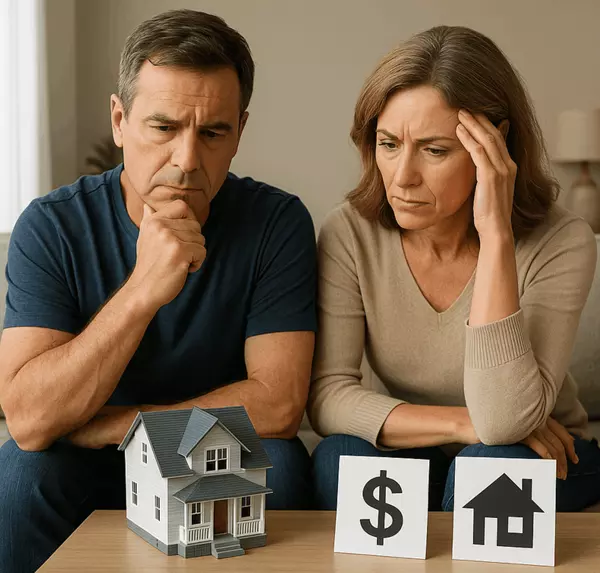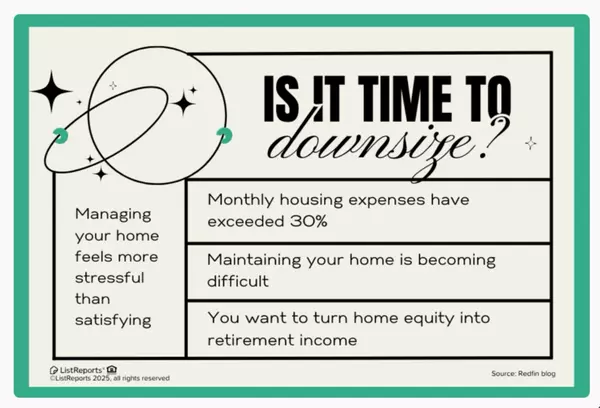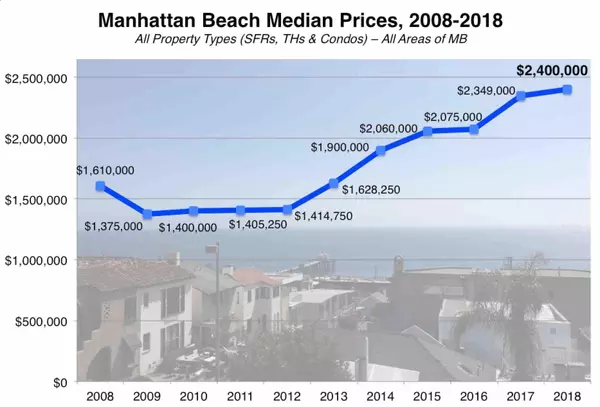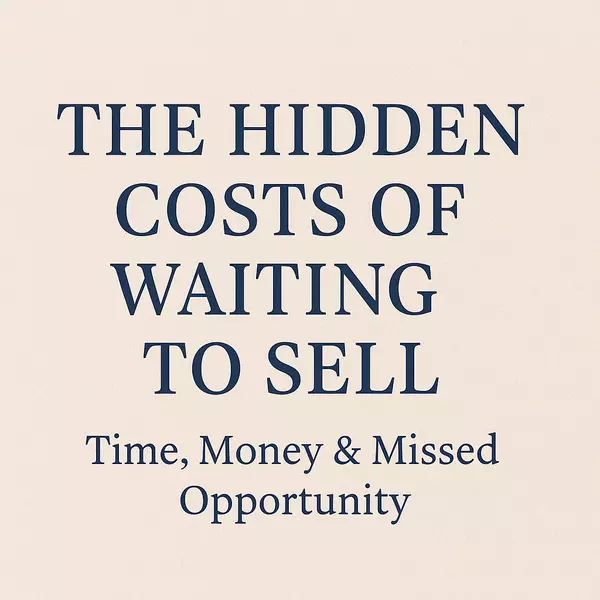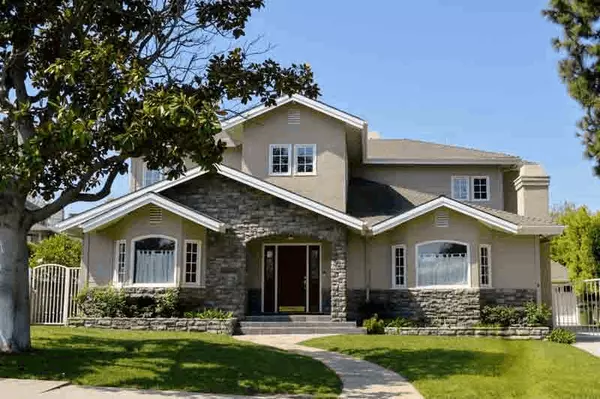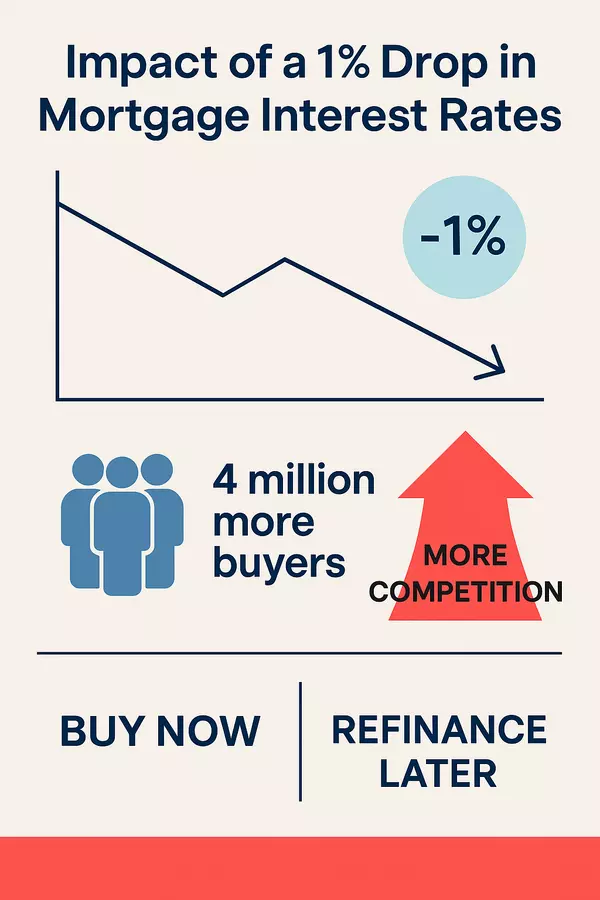Why Overpricing Your Home in Spring 2025 Could Backfire

Selling your home this spring is exciting, and Spring 2025 is no exception. Flowers are blooming, buyers are out house-hunting, and you might feel it’s the perfect time to get a great price. But one of the biggest spring home selling tips I give every year is this: be very careful not to overprice your home.
It’s natural to want top dollar, and you may have heard about homes selling way above asking price in the past. However, pricing your home to sell in Spring 2025 means setting a fair, competitive price — not reaching for the highest number you can imagine. Overpricing your home could backfire and end up causing more stress and a lower final sale price than you hoped for.
The Temptation to Price High
You might remember a neighbor’s home that sold for a sky-high price, or feel all the upgrades you’ve added should bump up your asking price. Many sellers also think pricing high leaves room for negotiation later. It’s natural to want top dollar for your special home. However, overpricing can be a trap. Instead of attracting more money, an overpriced listing often scares away the very buyers you need. Today’s buyers have access to recent sales data and will know when a price is too high. They usually won’t bother trying to negotiate on an obviously overpriced home – they’ll just move on to a better-priced option. Limiting your buyer pool right from the start is one of the biggest dangers of overpricing your home.
Spring 2025: A Market Reality Check
The housing market in Spring 2025 isn’t the wild frenzy we saw a few years ago. With mortgage rates around 6.5–7%, buyers are more cautious with their budgets. And since more homes are for sale now, buyers have more options to choose from. We’re not seeing rapid price jumps this season; in many local neighborhoods, prices are flat or only inching up. That means if you list your home far above recent comparable sales, it’s likely to sit unsold. When buyers have choices, an overpriced home is often the last they look at. Your goal should be to make your listing compelling and competitive from the start, rather than letting it linger on the market while well-priced homes get snapped up.
Why Overpricing Backfires on Home Sellers
Overpricing has real consequences that can derail your sale. Here are some of the biggest ways it can backfire:
• You’ll Attract Fewer Buyers: Most buyers search for homes online with price filters. If your home is priced above its true market value, it might not even appear in their search results. And even if it does, many will scroll right past, assuming it’s overpriced and not worth seeing. Fewer eyes on your listing means fewer chances for the right buyer to even step through the door.
• Your Listing Will Go Stale: The longer your home sits unsold, the more buyers start to wonder “what’s wrong with it?” An overpriced listing often misses the critical first few weeks when new listings get the most attention. By the time you reduce the price, that initial excitement is gone. A home that lingers on the market can develop a stigma, making buyers less willing to pay your original price.
• It Might Not Appraise: Imagine you do find a buyer at your high price. If they’re using a mortgage, the bank will have the home appraised. If the appraisal comes in lower than the purchase price, the lender won’t cover the difference. This often means the deal falls apart or you must renegotiate down to the appraised value, losing the very advantage you hoped to gain by pricing high.
• More Stress, Less Success: Overpricing typically means your home takes longer to sell, which creates extra stress. Keeping your house tour-ready for weeks on end and living in uncertainty is tough – especially if you’ve already bought your next home. And after all that, you might actually walk away with less money. A home that starts overpriced often ends up selling for less than it would have if priced correctly from the get-go, because repeated price cuts and a drawn-out process weaken your negotiating power. In short, it takes longer, feels draining, and can lead to a disappointing outcome.
How to Price Your Home Correctly
So, how do you determine the right asking price? How to price a home correctly comes down to research, realism, and the right guidance. Here are some practical steps to get it right from the start:
• Look at Comparable Sales (“Comps”): Review what similar homes in your area have sold for recently. Focus on homes similar in size, features, and condition to yours. These comparable sales give you a realistic range for your home’s market value. Buyers (and appraisers) will definitely be looking at these numbers too.
• Be Objective and Think Like a Buyer: It’s easy to be emotionally biased about your home’s value – maybe you adore your custom upgrades or have cherished memories there. While those things are important to you, buyers will focus on market value. Try to step into a buyer’s shoes. Given other homes for sale, what price would make your property a great value in their eyes?
• Factor in Market Conditions: In a hot seller’s market you might push the price a bit, but Spring 2025 is more balanced. If interest rates are high or inventory is up, buyers become more price-sensitive. Look at how long homes are sitting on the market in your area, and if many are needing price reductions. Use that info to decide on a competitive price that will attract interest early.
• Get Professional Input: Have a local real estate agent prepare a Comparative Market Analysis (CMA) for you. A seasoned agent can help interpret the data and set a smart, competitive price. They often know the backstory of recent sales – for example, if one house sold low due to needed repairs, or another sold high because it was in perfect condition. Armed with expert advice, you can avoid overpricing and instead price your home to sell from day one.
A Successful Sale Without the Stress
The bottom line is that pricing your home correctly from the start is one of the best moves you can make for a smooth, successful sale. It might feel a bit scary to list at a price that isn’t as high as you think you could get, but remember that the goal is to generate real interest and offers, not to have your home sit on the market. When you price it right, you’re more likely to sell quicker, save on carrying costs, and avoid the stress of a drawn-out process.
Every home and situation is unique, and finding that sweet spot for pricing can take a little work. If you’re unsure about your home’s value or want to talk through a pricing strategy, I’m here to help. Feel free to reach out for a friendly, no-pressure chat about your plans. I’m happy to offer my insights, provide a detailed market analysis, or just answer your questions about selling in Spring 2025. Sometimes an informal conversation is all it takes to feel confident that you’re on the right track. My goal is to help you succeed in selling your home with less stress and more peace of mind.
Categories
Recent Posts

